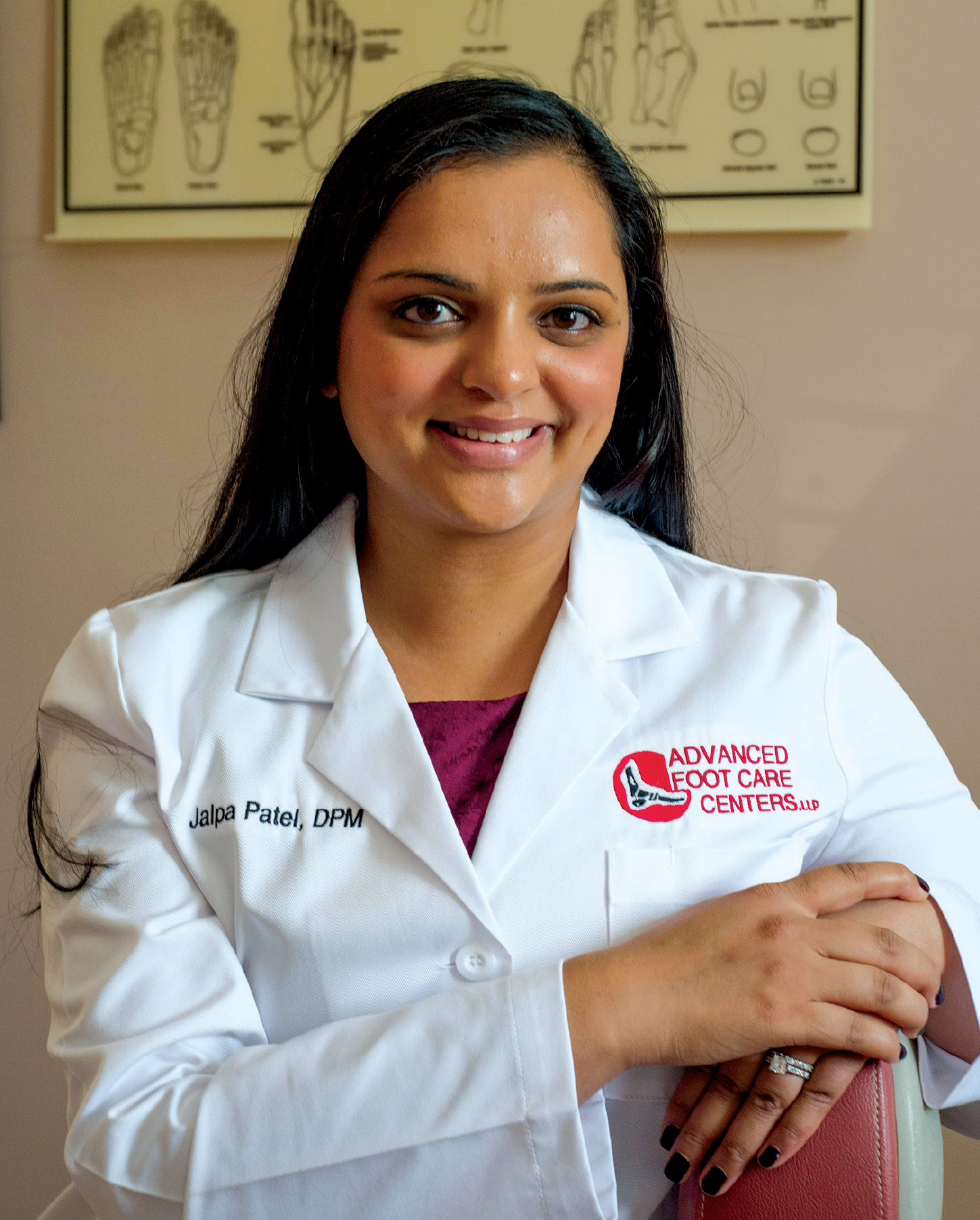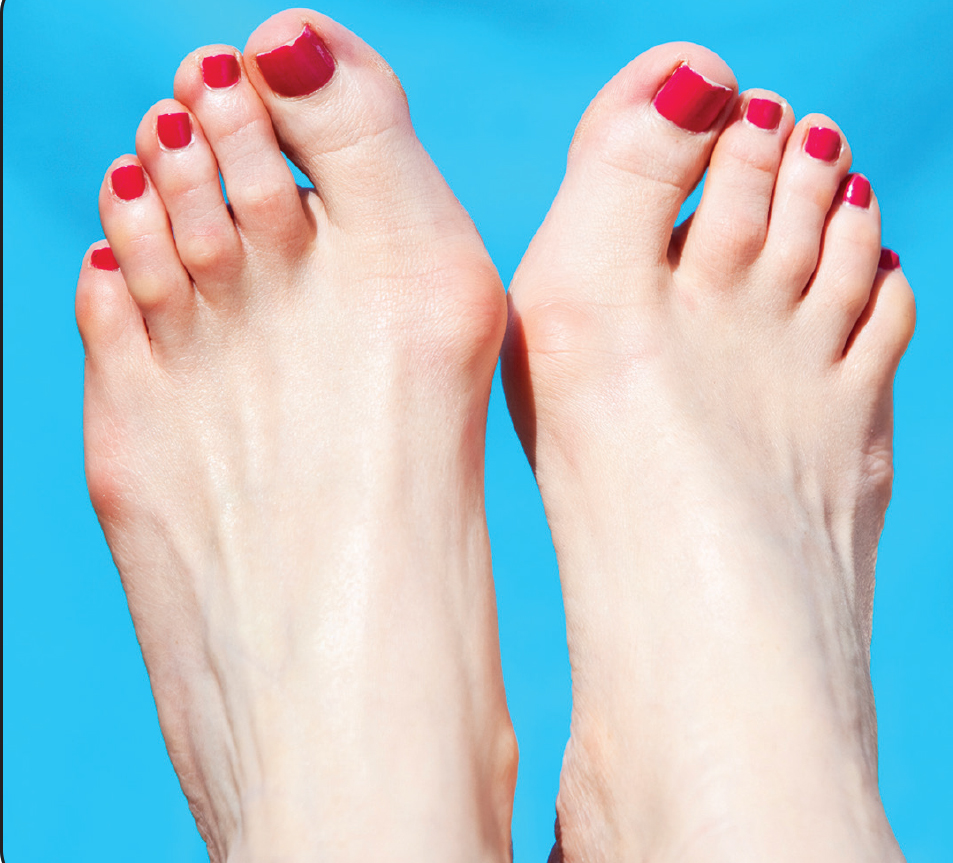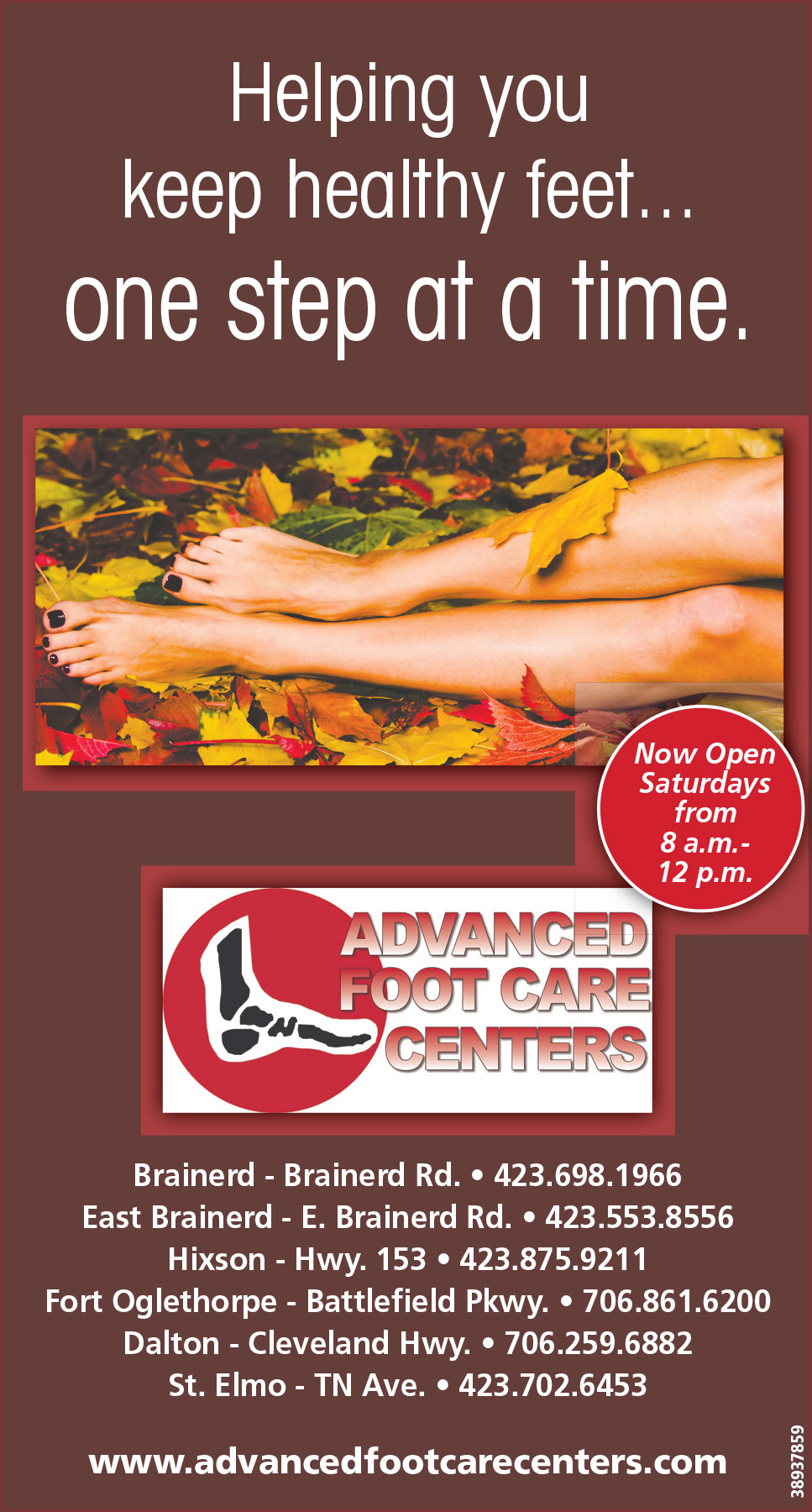When it comes to bunions, people can find themselves dealing with a multitude of discomforts and inconveniences. Thanks to the team at Advanced Foot Care, not only is relief is in sight, but people can now be sure they fully know what they are dealing with and what their options are.
"A lot of people think that wearing high-heeled shoes or tight fighting shoes leads to bunions, but the truth is, that's really just a myth," said Dr. Jalpa Patel of Advanced Foot Care. "In reality, you're born with a certain foot type and function, and that's the primary contributor to bunions."
Patel explained that bunions form when forces around the great toe joint do not allow the joints to function correctly
"With that said, wearing ill-fitting shoes can definitely aggravate the problem," she said. "It can make the bunion progress faster."
She went on to say that bunions are a result of two areas of weakness which people are inherently born with. People who battle bunions typically complain of pain and having trouble finding a pair of shoes that do not aggravate the condition.
For prevention and treatment, Patel said patients can do several things.
"Depending on the severity of the condition, the bunion can be treated with strapping or padding to relieve pain and deformity," she explained. "We can also give injections to help with inflammation."
If the bunion is more severe or pain and discomfort persist, the staff at Advanced Foot Care may recommend custom orthotics to help slow the deformity, and in very severe cases, surgery can be an option.
"We look at the deformity and pain level of the patient, and if surgery is warranted, it can be anything from release of soft tissue to shifting of bone and fusion of joints."
Ways to avoid discomfort when dealing with a bunion include wearing the correct shoe gear and finding the right custom orthotics from a certified podiatrist.
People who suffer from bunions should get them evaluated and not put off surgery if it is necessary. An evaluation begins with an X-ray of the foot to check the intermetatarsal angle and position of the joint. From there, a course of treatment is recommended.
"It will more than likely get worse if left untreated," she said. "Bunions can become red, painful and cause pain whether you're walking or standing, or really any time."
The podiatrists at Advanced Foot Care are all on the cutting edge of technology and have a wide variety of custom orthotics and over-the-counter straps and pads to help treat bunions in-house.
"There's also a surgery center conveniently located here in North Georgia if patients need that option," Patel said.
Patel is a brand new provider to the Advanced Foot Care team and is treating patients at the Dalton office. She just completed her surgical residency.
Noteworthy:
"A lot of people think that wearing high-heeled shoes or tight fighting shoes leads to bunions, but the truth is, that's really just a myth," said Dr. Jalpa Patel of Advanced Foot Care.
MORE INFORMATION
Advanced Foot Care now has six providers in six locations. Offices are in Tennessee at 4308 Brainerd Road; 7550 East Brainerd Road; 5617 Highway 153, Suite 102; and 3742 Tennessee Ave. in St. Elmo. Georgia locations are at 2368 Battlefield Parkway and 1716 Cleveland Highway, Suite 104, in Dalton. For more information about Advanced Foot Care's services, or to schedule an appointment, visit advancedfootcarecenters.com.


